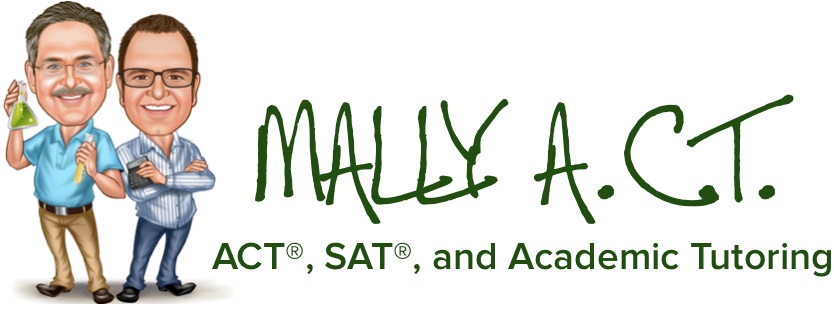ACT Prep: Should Students Take the ACT without Practice?
/It’s getting close to the time when current sophomores start figuring out when they should take the ACT® for the first time, which isn’t a surprise considering testing dates for this year are winding down and the ACT® for the first time ever is offering a test in July.
It is also getting close to the time when we start fielding questions from parents and students alike surrounding whether or not students should take the test blind for the first time without any practice whatsoever.
While it’s easy to make the argument that students want to get comfortable with the test day scenario as much as possible, we strongly urge students that they should not take the test without any preparation for the first time.
At Mally A.C.T., we preach confidence building just as much as we preach testing strategies. Our philosophy is that if students feel good walking into the test, they’ll feel great walking out of the test afterward.
Let’s say, hypothetically speaking, that a student with a 4.00 GPA walks into the test blind with all of the confidence in the world, but gets a score back that they’re not happy with?
The blow to that student’s self-confidence could be catastrophic, and then test anxiety could become a major issue going forward every. single. time. they take the test.
That low score could always be in the back of their mind, and digging out of that mental hole could be extremely difficult.
Additionally, some of the more prestigious colleges and universities prefer that students only take the ACT® once or twice. The thought process is that if students have to take it a bunch of times, maybe that student isn’t necessarily a good fit for their school.
Granted, we don’t necessarily agree with that, but that’s how some schools feel.
We offer students a chance to take a full-length ACT® without having to actually register for one, complete with a detailed six-page analysis that will help determine specific strengths and weaknesses in a given section.
Our analysis is much more than just a score – it’s a detailed description of whether or not a student is struggling with content, strategy, and/or timing with specific action points instead of broad-brush explanations provided by some of the other resources on the market.
The analysis also provides students with a timed score and an untimed score to show how much timing impacts student's scores.
We've found that the majority of students have timing issues on the ACT®, and if students are just guessing at the end to get the test in under time, it doesn't provide an accurate gauge of what their actual baseline score.
Here's a good hypothetical scenario - Student Liz came in with a 22 on the reading section, but with an extra 7:30 on the section, she got a 33. She knew how to get the right answer, but now we know that she needs timing strategies instead of content strategies. Similarly, she got a 21 on the math section, but with an extra 20 minutes spent, her score increased to a 22. Now we know that she needs help with content.
This is why our test analysis can be so helpful in developing a baseline score for students, and why students should not take an actual ACT® test blind.
If you have any questions about our analysis or if you’re just looking for a little ACT® advice in general, our tutoring consultants are always here to help.


